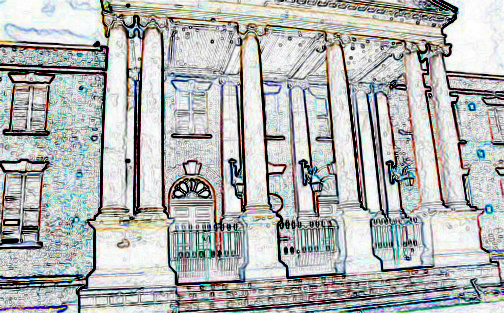By Ramesh Sujanani
Op-Ed Contributor
It was somewhat disconcerting to read that Christopher “Dudus” Coke’s dollars are wanted. My first reaction was, very well; we have to confiscate this money, and to my surprise, it is the US authorities that will do the search in Jamaica and other countries.
I see that District Judge Robert Patterson demanded that Dudus hand over his assets to the US. So my mind ran ablaze with questions.
It would seem that Dudus does not have the power to hand over his assets, except to the government of Jamaica, having committed crimes under “The Proceeds of Crime Act” because he is a Jamaican citizen, and the likely assets are in Jamaica.
The Money Laundering Act indicates (or remains silent) that the only agency with a right to these assets is the one designated by the government of Jamaica. I am not aware that a District Court in the United States has a right to make a ruling effective in another country, unless some permission, or understanding, exists between Governments. Perhaps such an arrangement exists, however.
But how can US Investigators come to Jamaica and directly investigate and locate assets belonging to Dudus without interaction with security forces in Jamaica, since Dudus resided in Jamaica, and is, in fact, a Jamaican with business interests formerly situated in Jamaica?
I recall in March of this year, we had attorney Julissa Reynoso, the US State Department’s then-deputy assistant secretary (and now the US Ambassador to Uruguay), telling us of aid totaling $139 million to be made available in support of causes including maritime and aerial security, a law enforcement building, justice sector reform and others.
But the salient question is, when all is said and done; to whom do the recovered assets belong? Do not they include, homes, vehicles, Investments, businesses, money in all forms, and other assets?
Under Jamaican Law the Proceeds of Crime Act, which I believe should be repealed, holds that confiscation of criminal assets, whoever and wherever they belong, once seized, belong to the State. I am not aware there is any mechanism for special trial or hearing, appeal, or re-instatement.
US law generally holds that property cannot be taken from a citizen without “due process of law,” which means a trial or hearing.
Forfeiture laws, however, are slowly evolving to deprive citizens the right to property depending on the police’s discretion. This was never intended under the US Founding Fathers’ rules, and meets the objection of the ACLU.
In the UK, the right of seizure under the POCA remains basically the same, except that the State must determine that they have established the connection between the property and the offense, and to commence proceedings that comply with any statutes governing third-party rights, including victims, owners, and other interests.
In my estimation, no person or groups can confiscate without an order of the appropriate court, which then authorizes identification of the assets to be seized. In this case, it has to be a Jamaican court, informed by Jamaican law enforcement, in respect of assets in Jamaica. US-seized assets would then refer forfeiture to US law enforcement.
What about assets that cannot be identified, or claimed by anyone? How would these be disbursed? Here again, I would argue that assets located in Jamaica should go to the government of Jamaica, and those located in America to the US government. Any other variation would have to be negotiated by both governments, by some formula previously decided. There would then be true cooperation between both authorities.
Ramesh K Sujanani can be reached at rsujanani78@gmail.com.
Note: the opinions expressed in Caribbean Journal Op-Eds are those of the author and do not necessarily reflect the views of the Caribbean Journal.
